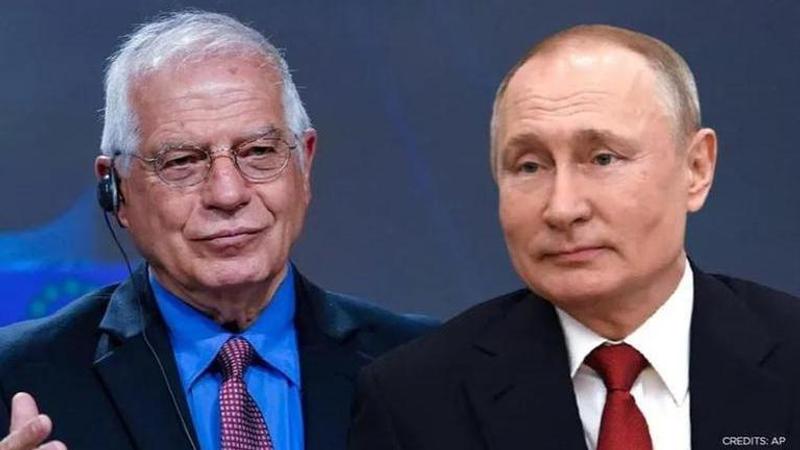Published 15:32 IST, February 4th 2021
EU's foreign policy chief Josep Borrell jets to Russia amid Alexei Navalny controversy
EU foreign policy chief Josep Borrell jets to Moscow on February 4 amid jailing of Kremlin critic Alexei Navalny and crackdown against protesters.

European Union foreign policy chief Josep Borrell jets to Moscow on February 4 amid jailing of Kremlin critic Alexei Navalny and crackdown against protesters. According to the Moscow Times, Borrell’s visit marks the first to Russia by a tip EU envoy since 2017. His trip, however, has drawn criticism from some European capitals worried Moscow will spin it as evidence Brussels is keen to return to business as normal.
But Borrell has insisted that he will deliver “clear message” to the Kremlin despite it blanking Western calls to release Russian President Vladimir Putin’s domestic opponent Navalny, who was on Tuesday given a jail term of almost three years. Apart from Navalny’s detention, the top EU envoy will also be discussing cooperation on issues including enlisting Russia’s help in reviving the Iran nuclear deal and tackling climate change. Russia, on the other hand, also hopes that relation with the 27-bloc nation could become warmer following Borrell’s visit.
Vladimir Chizhov, Russia’s permanent representative to the EU, has said that Borrell’s visit, which is scheduled for Feb 4-6, could pave way for similar meetings in the future. Asked if it could also “unfreeze” the relations between the two, Chizhov clarified Russia’s mutual relation with EU wasn’t “deeply frozen” in the first place.
EU-Russia relations
While both the European Union and Russian Federation share several contracts on trade, politics, personal data protection and implementation of JCPOA, their ties have been severed since 2014. Primary causes include Russia’s illegal annexation of Crimea, support for rebel groups in eastern Ukraine, policies in the neighbourhood, disinformation campaigns and negative internal developments. Putin administration’s intervention in Syria, Libya and sub-Saharan Africa have also irked the bloc promoting it renew several sanctions against Moscow.
Federica Mogherini, who served as EU’s High Representative of the Union for Foreign Affairs and Security Policy from 2014 till 2019, previously visited Russia in 2017. Since then, there have been several telephonic discussions and virtual conferences, but no in-person meeting has been conducted. "The latest visit to Russia was paid by Federica Mogherini, Josep Borrell's predecessor in the post, back in April 2017. Of course, there have been both phone conversations and meetings on the sidelines of different events, but no full-scale visits have been paid since," Chizhov recalled speaking to Sputnik.
Updated 15:32 IST, February 4th 2021




